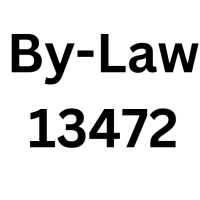Summary
Cut through the green tape
We don't push agendas. At Net Zero Compare, we cut through the hype and fear to deliver the straightforward facts you need for making informed decisions on green products and services. Whether motivated by compliance, customer demands, or a real passion for the environment, you’re welcome here. We provide reliable information—why you seek it is not our concern.
Details
- Vancouver
Deep dive
Background
Introduced in 2022, the Annual Greenhouse Gas and Energy Limits By-law No. 13472 sets binding greenhouse gas (GHG) and energy limits for large buildings in Vancouver. By-Law No. 13472 is a key part of the city’s Climate Emergency Action Plan, aiming to reduce building emissions by 50% by 2030 and achieve net-zero by 2050. Buildings account for 54% of Vancouver’s carbon pollution, making this by-law critical to the city’s climate goals. This by-law directly supports the Canadian Net-Zero Emissions Accountability Act (2021) and the 2030 Emissions Reduction Plan by implementing stringent, measurable building sector targets that align with Canada’s commitment to cut national emissions 40-45% below 2005 levels by 2030. As buildings generate a significant portion of Canada’s total GHG emissions, Vancouver’s policy—which mandates absolute emissions reductions rather than just reporting—provides a replicable model for other municipalities in Canada. The by-law also complements existing federal programs like the Greener Homes Initiative and the proposed Clean Electricity Regulations.
Emissions Reporting Requirements
Under By-law No. 13472, with effect from 1 January 2023, owners of specified buildings are required to submit annual energy and carbon reports detailing their greenhouse gas emissions and energy consumption. The initial reports are due by 1 June of the year following the reporting period. For example, data for the 2024 calendar year must be reported by 1 June 2025. Building owners must use the ENERGY STAR Portfolio Manager to compile their data and submit it through the City's Building Performance Reporting System. Detailed guidance has been provided on how to submit the annual emissions reports on the online portal.
Covered Buildings and Scope
The Annual Greenhouse Gas and Energy Limits By-law No. 13472 mandates annual energy and carbon reporting for various building types in Vancouver, with requirements phased in over several years. Initially, starting in 2024, the by-law applied to commercial buildings, like office, retail, and mixed-use structures with a gross floor area (GFA) of 9,290 square meters or more. These buildings were required to submit their first reports by 1 June 2024, covering data from the 2023 calendar year. Beginning in January 2025, the reporting requirements expanded to include all commercial buildings with a GFA of 4,645 square meters (50,000 square feet) or more, as well as multi-family residential buildings within the same size threshold. Accordingly, by 1 June 2026, owners of these buildings must submit reports covering their 2025 energy use and emissions data. The by-law's phased approach aims to progressively include a broader range of building types and sizes, thereby enhancing the city's efforts to monitor and reduce carbon emissions across its building stock. Building owners and managers are encouraged to familiarize themselves with the specific timelines and reporting requirements applicable to their properties to ensure compliance.
Penalties for noncompliance
Building owners and operators subject to Vancouver’s By-law No. 13472 are liable to penalties for non-compliance. The City of Vancouver may issue a by-law notice of $500 for each violation, including failure to claim the building in the Energize Vancouver Building Performance Reporting System (BPRS), failure to file a complete energy and carbon report by the June 1 deadline without an approved extension, submission of incomplete or inaccurate data, or complete failure to submit any required data. Importantly, the City may issue multiple by-law notices for separate or ongoing violations. Paying a by-law notice does not constitute compliance with the by-law. Even after paying any penalties, responsible parties remain obligated to properly file all required energy and carbon reports through the BPRS system.


